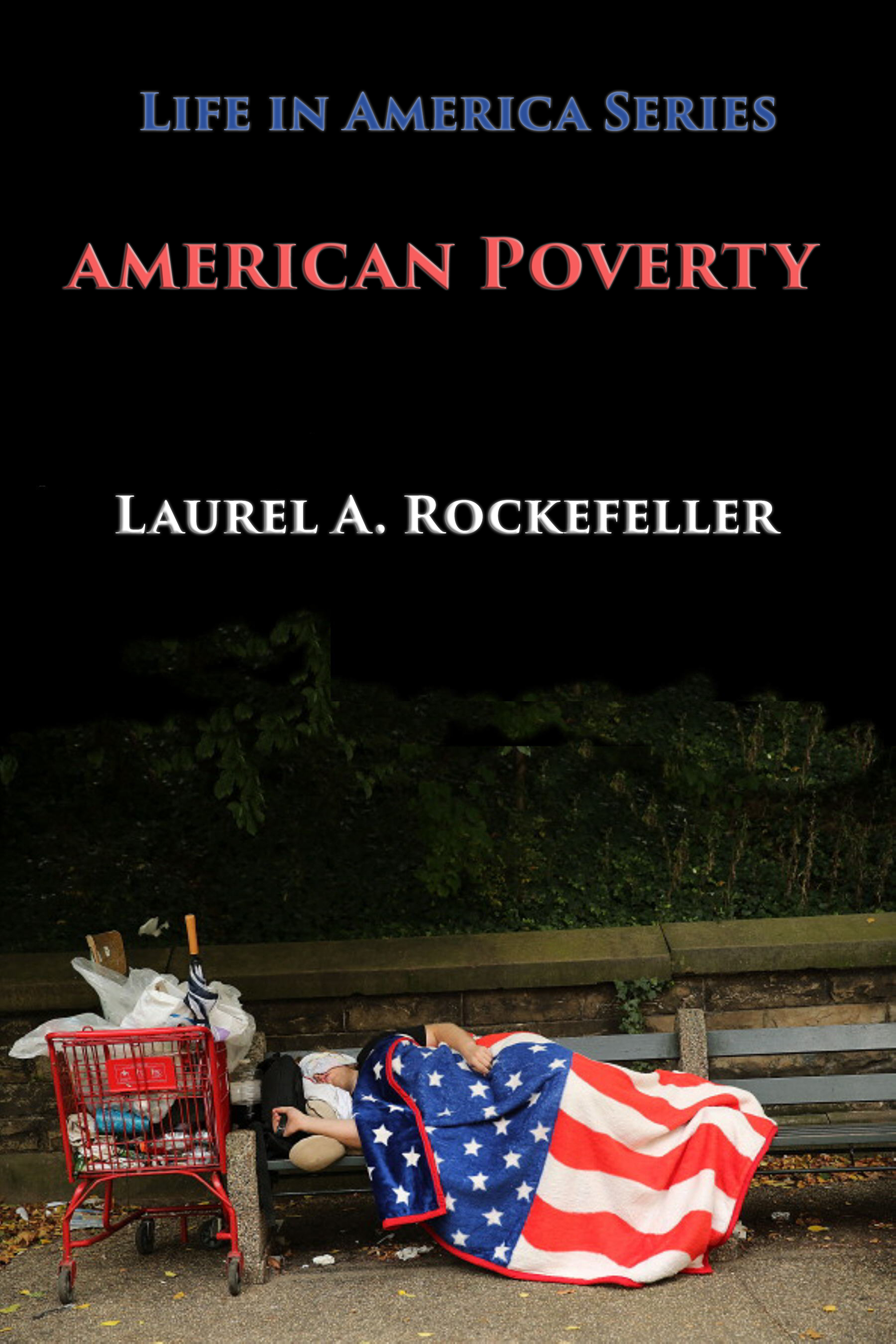
In this thought-provoking historical and economic analysis, Laurel A. Rockefeller takes on poverty culture head-on, exploring what it means to poor in the United States while taking a look at how America's closest and much more economically successful allies (Canada, Germany, France, and the United Kingdom) take care of their poor. From housing conditions to hunger to poverty psychology, Ms. Rockefeller takes on the core issues while offering tangible steps everyone of every income bracket can take today to secure America's future and guarantee a secure America for our children.
Part one: essays exploring five facets of poverty in America: a lack of empathy, complacency about poverty, poverty shaming, public housing, and rape culture.
Part two: analysis on how each of us can and should address each facet of poverty, no matter how old or young we are.
Part three: a look at poverty and public policy towards poverty in Germany, France, Canada, and the United Kingdom. Comparative analysis between these US allies and the United States and the impact of poverty on foreign policy and national security.
Sources include: American Express, Forbes, CNN Money, The New York Times, Feeding America, The Shriver Report, Herald Scotland, BBC News, The Joseph Roundtree Foundation, The Huffington Post, and The Toronto Star.
No longer accepting new translation contracts.
But building resilience is not just about natural disasters (the context of the IME’s recommendations). Better buildings and better infrastructure dramatically improve our quality of life. Well-built homes of all configurations are not only safer in severe weather, but simply nicer places to live. They are quieter, warmer in winter, cooler in summer, more energy efficient, and more comfortable.
Comfort matters because of the way it affects us physically and psychologically. It is far easier to be more civil, kinder, more generous, and more helpful to other people when we do not feel stressed, when we feel at ease, especially at home. Our housing affects our health. The poorly built home that lets in noise from our neighbours destroys our ability to sleep without which we cannot be healthy.
Healthcare is of course that other infrastructure elephant in the room. Congress seems to be hell bent on destroying healthcare reforms, the idea being that it costs too much to invest in Obamacare’s preventative medicine provisions.
But is preventative care really as expensive as some politicians would have the 99% in America believe?
| Language | Status |
|---|---|
|
Italian
|
Already translated.
Translated by Maria Vexille
|